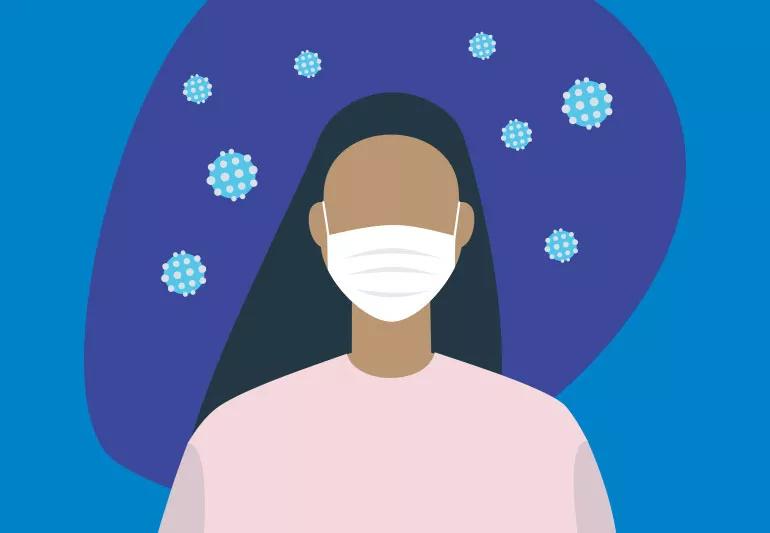Get the short answer from a pulmonologist

Image content: This image is available to view online.
View image online (https://assets.clevelandclinic.org/transform/70617684-701a-463b-8e52-3aa607cafd79/maskHealthRisk-1202863406-770x533-1_jpg)
woman wearing mask worrying about health
Q: We’ve seen social media posts that speak to masks affecting our health in negative ways. Should we be concerned?
Advertisement
Cleveland Clinic is a non-profit academic medical center. Advertising on our site helps support our mission. We do not endorse non-Cleveland Clinic products or services. Policy
A: There can be behavioral reasons (young children, psychiatric illness, autism, claustrophobia, etc.) for why individuals might not tolerate a mask or not understand the reason for wearing one. This is especially true with small children. When it comes to them, the CDC doesn’t recommend putting masks on children under the age of two because they aren’t capable of removing them and they could suffocate.
At the Respiratory Institute, we’ve taken the position that there is virtually no circumstance that warrants an exemption from wearing a mask based on lung disease. Exceptions come along with the risk of individuals endangering themselves and everyone around them. But we have a collective responsibility to make sure that we are not placing our community in harm’s way.
Many patients with significant respiratory issues are able to wear masks without difficulty. Even patients on the lung transplant waiting list who arguably have the severest forms of advanced lung disease are able to wear masks. If they can do it, anybody can.
As for CO2 retention, I have not seen any evidence for it with any mask type, including N95 masks. It certainly does not apply to cloth masks or any masks that do not provide a tight seal.
Advertisement
⚊ Pulmonologist Raed Dweik, MD, Chairman of Cleveland Clinic’s Respiratory Institute
Advertisement

Delivered every Tuesday!
Sign up for our Health Essentials emails for expert guidance on nutrition, fitness, sleep, skin care and more
It's a letter about the news!

Every two weeks once
Sign up for our Health Essentials emails for expert guidance on nutrition, fitness, sleep, skin care and more.
Learn more about our editorial process.
Advertisement
A pediatric psychologist weighs in on continued masking for kids
The short answer from an infectious disease specialist
What to know about running in a face mask during the coronavirus pandemic
Proper etiquette for asking others to comply with mask rules
Learn how one simple action can help keep the whole family safe
Talking points from a healthcare provider
The short answer from an infectious disease specialist
Make it easier to hear and be heard
Type 2 diabetes isn’t inevitable with these dietary changes
Applying a hot or cold compress can help with pain
Pump up your iron intake with foods like tuna, tofu and turkey